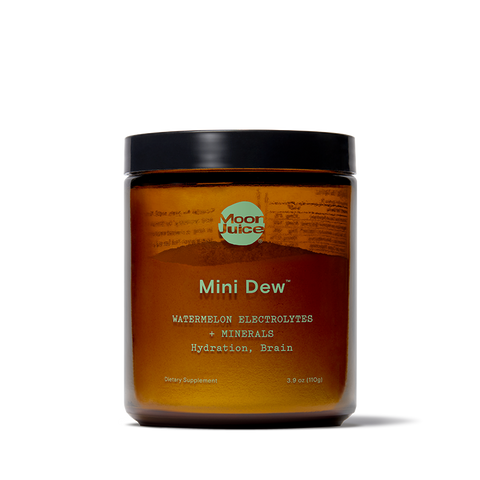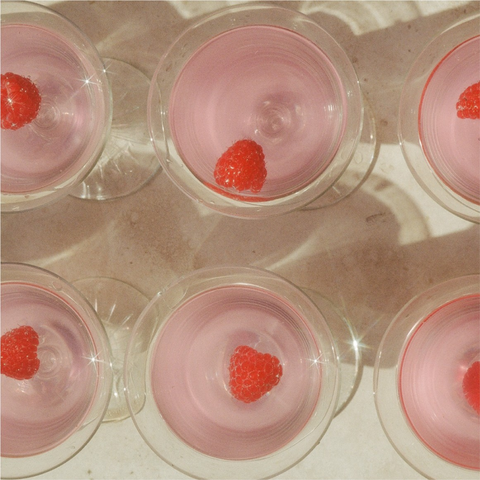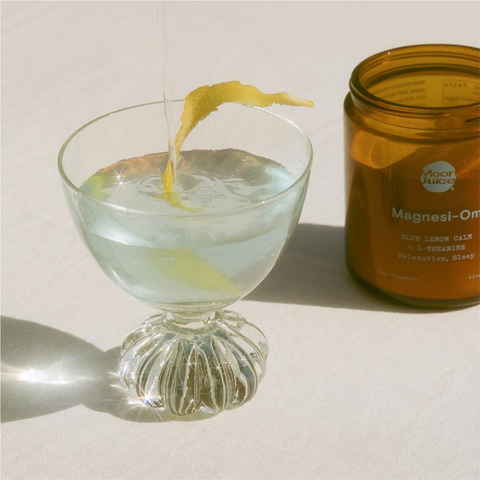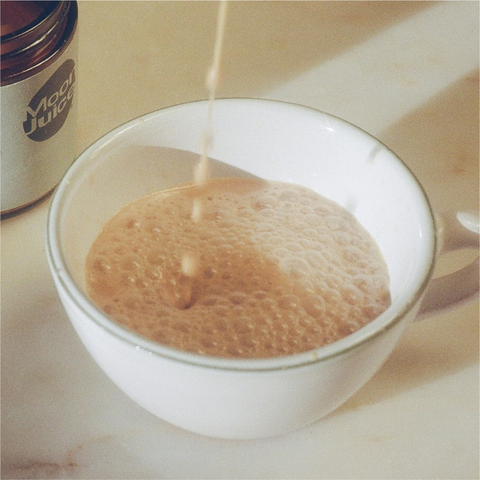While hydration is typically top of mind during the summer, the truth is that staying hydrated is crucial for your health and well-being 365 days a year. As important and beneficial as plain H2O is, sometimes it’s simply not enough to keep your brain and body in tip-top shape. In certain scenarios, electrolytes are critical to optimize your hydration status. But are electrolytes better than water? (Spoiler alert: In some cases, yes.)
If you have ever wondered what’s the difference between drinking electrolyte water vs. plain water, you’re not alone. Ahead, discover when to take electrolytes and why they may be better to take than water alone.
The Role of Water in Hydration
Humans need to drink water daily to support vital functions. According to the Harvard T.H. Chan School of Public Health, hydrating with regular water consistently throughout the day helps to:
- Transport nutrients to cells
- Promote proper organ function
- Support thermoregulation
- Lubricate joints
- Improve cognition, mood, and sleep quality
Moreover, per the U.S. Geological Survey, water assists in:
- Acting as a building material for cells
- Flushing waste via urination
- Forming saliva
Benefits of Electrolytes for Hydration
Per the Cleveland Clinic, electrolytes maintain fluid and electrolyte balance inside and outside of cells. As such, they play a beneficial role in staving off dehydration by retaining fluids while keeping bodily functions running smoothly. Your body also experiences electrolyte loss through fluid loss like sweating, whether from high temperatures, humidity, exercising, sauna use, or just through the course of daily life. In these cases, it’s crucial to know how to rehydrate fast to prevent an electrolyte imbalance (think: fatigue, brain fog, and muscle cramps).
Nonetheless, you still need to sip up on water to avoid dehydration. Electrolyte imbalance indicates an abnormal presence of electrolytes in the body, whereas dehydration points to a lack of actual fluids.
Do Electrolytes Hydrate You Faster Than Water?
While electrolytes don’t directly boost hydration levels, they play a role in replenishing proper hydration quickly. Common electrolytes are necessary for fluid retention at the cellular level and throughout the body. Thus, keeping your electrolyte levels within healthy bounds can assist in preventing water loss (aka dehydration).
You’ll also do yourself a solid by taking a proactive vs. reactive approach to supplementing with electrolytes. Per a 2021 randomized controlled trial published in the journal Nutrients, electrolytes made the most significant impact in boosting the hydration properties of drinks when they were consumed at rest (i.e., before a workout and other sweat-inducing activities).
Tip: Drinking electrolyte water vs. water on its own is a surefire way to stay on top of your electrolyte game *and* fluid intake.
When to Choose Electrolytes Over Water
There are several scenarios in which you’ll definitely benefit from adding electrolytes to water vs. drinking plain water.
For Sports and High-Intensity Workouts
The more you sweat, the more electrolytes you lose — and the more ideal it is to consume electrolyte water vs. water alone. Sports and high-intensity workouts (e.g., hot yoga, cycling, and HIIT classes) will often call for drinking electrolytes over plain water since they’ll likely leave you drenched with sweat and thus experience electrolyte loss (namely sodium, an important electrolyte) and water.
That said, a short workout or even a walk around the block on a hot and humid day can leave you extra sweaty. In this case, electrolytes will be better than water to stay hydrated and healthy.
When You're Dehydrated
Remember: It’s ideal to get ahead of dehydration before it settles in. As a reminder, dehydrating events and activities include but aren’t limited to:
- Exercise
- Sickness
- Air travel
- Alcohol consumption
- Sauna use
- Sleep
To stay hydrated, you’ll want to:
- Start your morning with a glass of H2O
- Drink plain water consistently throughout the day
- Enjoy water-rich foods with electrolytes in your diet
- Limit diuretics like caffeine and alcohol
Electrolytes will still come in handy after experiencing signs of dehydration such as extreme thirst, dry mouth, dizziness, and dark urine. Once you replenish electrolytes after feeling dehydrated, your body will be better equipped to regulate and maintain fluid balance, thus maximizing the hydrating properties of the fluids you ingest.
When Water Is Sufficient for Hydration
General Daily Hydration
In the scenarios outlined above, you’ll find that electrolytes are better than water to feel and function your best. That said, regular water is still life-giving — not to mention approximately 50 to 60 percent of an adult body’s composition.
It’s important to drink H2O every day, spread evenly throughout the day, to support proper hydration. Avoid chugging too much at once, as doing so risks straining your kidneys and quickly losing fluids through excess urination. Drinking over 48 ounces of water per hour also risks making the concentration of salt in your blood dangerously low, warns the Centers for Disease Control (CDC).
Recommendations for how much water you need daily to stay hydrated and support these functions vary from one source to the next. For instance, the U.S. National Academies of Sciences, Engineering, and Medicine cites adequate daily fluid intake as 15.5 cups for men and 11.5 cups for women — the bulk of which should be water but can also come from hydrating foods like watermelon, cucumbers, tomatoes, spinach, and bell peppers. Another popular rule of thumb is to drink at least half your body weight in ounces of water each day. (For example, a person weighing 130 pounds should aim to consume 65-plus ounces of water.)
However, the ideal amount of water you should drink also hinges upon personal factors such as:
- Gender
- Age
- Level of physical activity
- Health status and medications
- Temperature and humidity
Low-Intensity Activities
Drinking water without added essential mineral electrolytes is sufficient on its own when you do low-intensity activities or exercises. These can range from your subway commute and cleaning the house to restorative yoga and morning stretches.
Stay More Hydrated with Mini Dew
When it’s ideal to opt for electrolytes vs. water — namely when you sweat, perform rigorous activities, or simply exist in hot and/or humid conditions — you’ll be all the wiser to keep an electrolyte drink powder on hand. Mini Dew™ offers not only a mix of electrolytes to support optimal hydration by maintaining water balance in and around cells but also ionic trace minerals to give your body the elements it needs to feel good and energized.
By mixing 1 tsp of this electrolyte powder into 12 oz of water, you’ll address your needs for both electrolytes and water intake one thirst-quenching sip at a time. Better yet, unlike many popular electrolyte drinks, Mini Dew™ — available in Watermelon, Pomelo, and Naked flavors — contains zero added sugar to keep your diet and greater health in prime condition.
Shop Mini Dew™ today so you can start making your own homemade electrolyte drink to stay hydrated!

Sources
- Harvard Chan. The importance of hydration. https://www.hsph.harvard.edu/news/hsph-in-the-news/the-importance-of-hydration/
- USGS. The Water in You: Water and the Human Body. https://www.usgs.gov/special-topics/water-science-school/science/water-you-water-and-human-body
- Cleveland Clinic. Electrolytes. https://my.clevelandclinic.org/health/diagnostics/21790-electrolytes
- PubMed. The Beverage Hydration Index: Influence of Electrolytes, Carbohydrate and Protein. https://pubmed.ncbi.nlm.nih.gov/34578811/
- NHS. Dehydration. https://www.nhs.uk/conditions/dehydration/
- CDC. Heat stress: Hydration. https://www.cdc.gov/niosh/mining/userfiles/works/pdfs/2017-126.pdf
- Mayo Clinic. Water: How much should you drink every day? https://www.mayoclinic.org/healthy-lifestyle/nutrition-and-healthy-eating/in-depth/water/art-20044256














